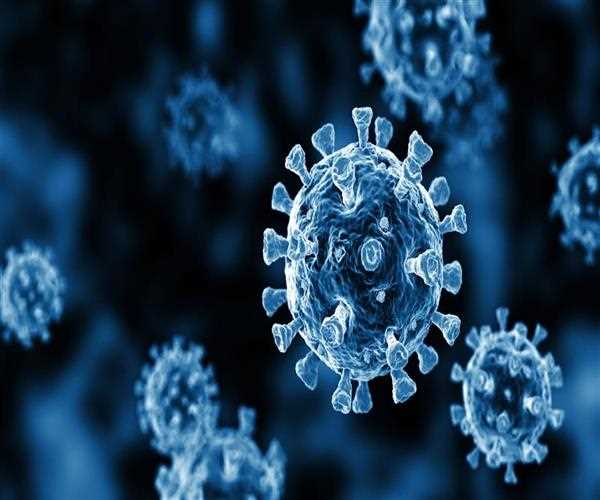
13-Jan-2023
Do we have to live with Covid now for next 100 years
Covid-19 has changed the world as we know it and it has taken nearly a year for many countries to come up with effective countermeasures. But even as vaccines begin to roll out, one major question still remains: do we have to live with Covid for the next 100 years? In this article, we will examine the latest research on Covid-19 and explore what it means for our future. We’ll look at the possibility of a long-term pandemic and what preventative measures we can take now in order to minimize its impact on our lives.
What is Covid-19
- Covid-19 is a novel coronavirus that was first identified in 2019. It is similar to SARS-CoV, the virus that caused the 2002-2004 SARS pandemic. As of June 2020, Covid-19 has caused a global pandemic of respiratory illness, with over 10 million confirmed cases and over 500,000 deaths.
- The majority of cases have been mild, but the virus can cause severe respiratory illness in some people, particularly those with underlying health conditions. There is currently no vaccine or specific treatment for Covid-19, but many countries are working on developing both.
What are the symptoms of Covid-19
The symptoms of Covid-19 are similar to those of the flu, including fever, coughing, and difficulty breathing. However, some people with Covid-19 may also experience more severe symptoms, such as pneumonia. Symptoms can appear anywhere from 2 to 14 days after exposure to the virus.
How is Covid-19 transmitted
Covid-19 is primarily transmitted through contact with respiratory droplets from an infected person. These droplets can be expelled when an infected person coughs, sneezes, or talks. The droplets can then land on surfaces or be inhaled by other people nearby. It is also possible to contract Covid-19 by touching a contaminated surface and then touching your eyes, nose, or mouth.
How to prevent the spread of Covid-19
- Covid-19 is a novel coronavirus that has caused a global pandemic of respiratory illness. The virus is spread through droplets of respiratory secretions, such as saliva or mucus, from an infected person.
- It can also be spread through close contact with an infected person, such as shaking hands or hugging. The best way to prevent the spread of Covid-19 is to practice good hand hygiene and social distancing.
- Good hand hygiene means washing your hands often with soap and water for at least 20 seconds, or using an alcohol-based hand sanitizer if soap and water are not available.
- You should wash your hands after coming into contact with any potential sources of the virus, such as doorknobs, countertops, or other people. Social distancing means maintaining a distance of at least six feet from other people, and avoiding close contact such as shaking hands or hugging.
What is the treatment for Covid-19
The treatment for Covid-19 is still being researched and developed. However, there are some things that can be done to help ease the symptoms and make the virus less severe. Treatment includes:
-Rest and isolation: This is one of the most important things you can do if you have Covid-19. By resting and isolating yourself, you can help your body recover and prevent the virus from spreading.
-Fluids: It’s important to stay hydrated when you have any illness, but it’s especially important with Covid-19. Drink plenty of fluids (water, juice, soup) to keep your body healthy and prevent dehydration.
-Pain relievers: Over-the-counter pain relievers like ibuprofen or acetaminophen can help with fever and body aches. Be sure to follow the directions on the label carefully.
-Cough medicine: There are over-the-counter medicines that can help relieve a cough associated with Covid-19. Again, be sure to follow the directions on the label carefully.
How long will the pandemic last
The duration of the pandemic is still unknown, and it largely depends on the development of a vaccine. However, some experts believe that we may need to live with Covid for the next few years. In fact, one expert has even suggested that the pandemic could last up to 10 years.
Conclusion
- It is still unclear if the Covid-19 pandemic will have an indefinite presence in our lives for the next 100 years. Although it is impossible to predict with any certainty, we can make efforts to reduce its spread and impact by following precautionary measures such as physical distancing, wearing masks, frequent handwashing and avoiding large gatherings.
- There are also promising advances being made in terms of vaccine development which could potentially help us eradicate this virus within a decade or less. Until then, all we can do is remain vigilant and take care of ourselves and those around us - both physically and mentally - so that we can all live safe lives for however long it takes for science to create a lasting solution against Covid-19.

SEO and Content Writer
I am Drishan vig. I used to write blogs, articles, and stories in a way that entices the audience. I assure you that consistency, style, and tone must be met while writing the content. Working with the clients like bfc, varthana, ITC hotels, indusind, mumpa, mollydolly etc. has made me realized that writing content is not enough but doing seo is the first thing for it.
Join Our Newsletter
Subscribe to our newsletter to receive emails about new views posts, releases and updates.
Copyright 2010 - 2026 MindStick Software Pvt. Ltd. All Rights Reserved Privacy Policy | Terms & Conditions | Cookie Policy